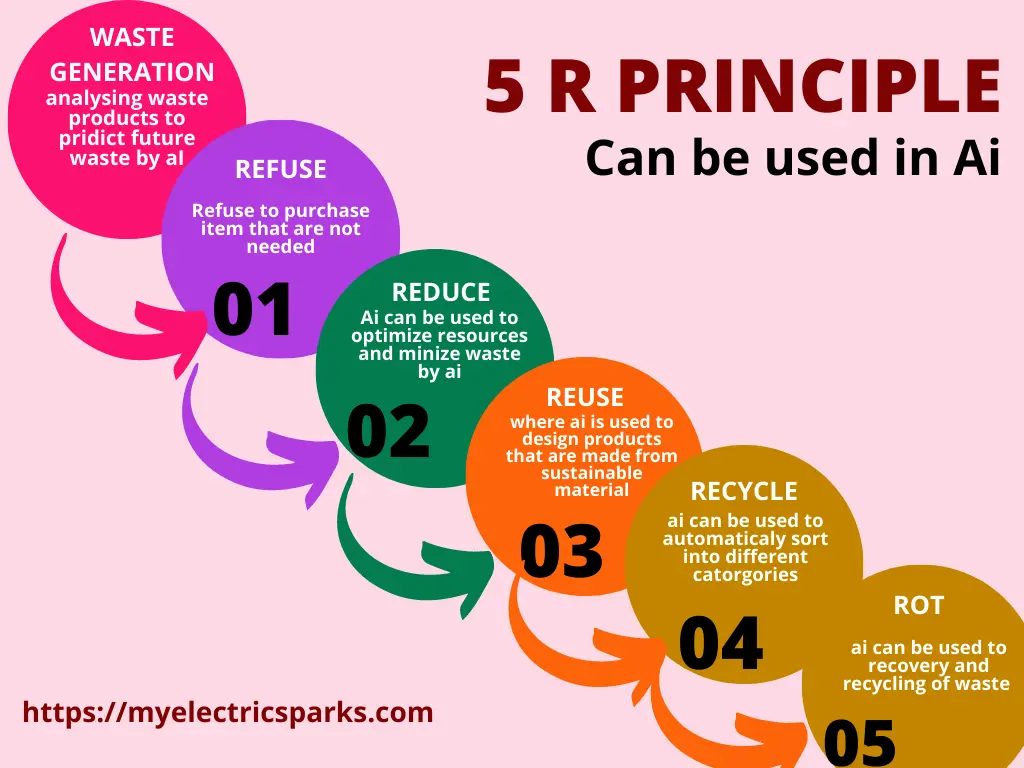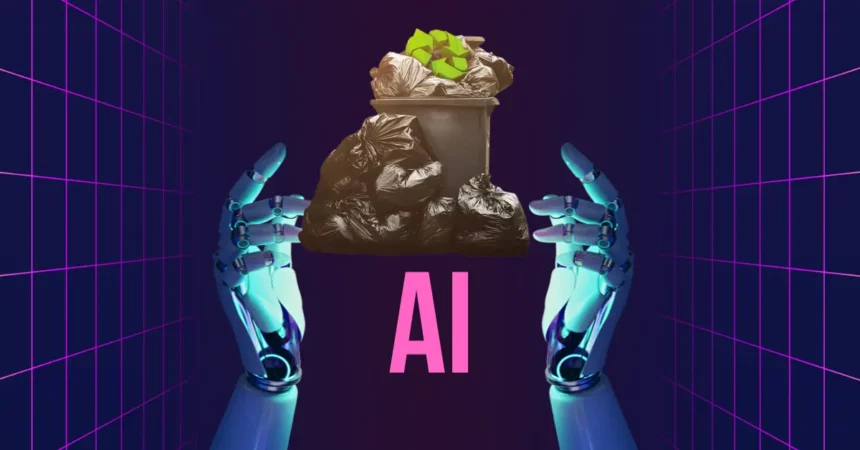Zero waste is a philosophy and design principle that aims to minimize the extraction of resources, waste creation, and pollution while maximising the use of resources and job creation.
The zero waste system is based on the 5 R principles: refuse, reduce, reuse, recycle, and rot. The goal of zero waste is to create a closed-loop system in which waste is viewed as a valuable resource, not as a problem to be disposed of. This shift in thinking is essential for reducing the environmental impact of waste and creating a more sustainable future.
The 5 R principle is a crucial concept in the zero waste philosophy and aims to minimize waste generation and maximize resource utilization. AI has the potential to support and enhance each of the 5 R principles as follows:
Refuse: AI can help predict which products are likely to become waste and target campaigns to reduce their consumption and disposal.
Reduce: AI algorithms can analyze waste generation data to identify areas for improvement and optimize resource usage.
Reuse: AI-powered intelligent sorting systems can improve the identification and separation of recyclable materials, enabling more efficient reuse.
Recycle: Predictive modeling can improve the efficiency of recycling processes, reducing waste and increasing recovery rates.
Rot: AI can be used to optimize the management of organic waste, reducing the amount of waste sent to landfills and improving composting practices.

AI has the potential to play a significant role in achieving zero waste by optimising resource usage, reducing waste generation, and improving recycling and recovery rates. AI can be used for predictive modeling, intelligent sorting, and innovative waste management. Predictive modeling uses AI algorithms to analyse waste generation and disposal data to predict future waste and identify opportunities to reduce it. This information can create targeted waste reduction strategies, such as reducing packaging or using more sustainable materials.
Intelligent sorting uses computer vision to automatically sort waste into categories, such as recyclables, organic waste, and hazardous waste. This process not only reduces the need for manual labor but also increases the accuracy and efficiency of sorting, reducing the likelihood of waste ending up in the wrong place. Innovative waste management uses AI algorithms to optimize waste collection routes and schedules, reducing the distance waste trucks travel and the fuel they use.
However, AI-based solutions often require significant data and specialised expertise, making it difficult for smaller organisations to adopt them. This presents a challenge for the widespread implementation of AI in waste reduction, particularly in developing countries where access to data and technology may be limited. Additionally, AI solutions can perpetuate existing inequalities and biases if the data used to train the algorithms needs to be more diverse and representative.
Another essential aspect to consider is the potential for AI to automate jobs in the waste management sector. While this may increase efficiency, it could also lead to job losses and negatively impact communities. It’s crucial to consider the social and economic implications of AI-based solutions and ensure that they are implemented responsibly and ethically.
To achieve zero waste, we need to change our thinking about waste and consumption and design products made from sustainable materials that can be reused. This involves designing products that are easy to repair, recycle, or compost and using non-toxic and biodegradable materials. Companies can also implement circular business models, where products are designed for continuous use, reuse, and recycling, reducing the need for new raw materials and waste.
In conclusion, AI has the potential to play a significant role in waste reduction, but it’s essential to approach its implementation with caution. While AI-based solutions can increase efficiency and accuracy, they also come with challenges, such as the need for data and specialised expertise, potential job losses, and the potential to perpetuate existing biases. To truly achieve zero waste, we need to focus on reducing waste and designing products that are sustainable, as well as responsible and ethical implementation of AI-based solutions.









